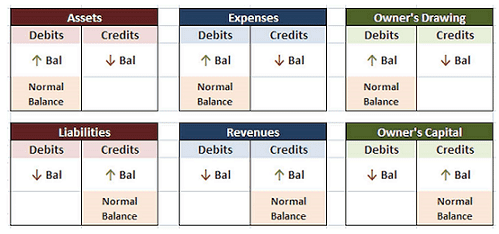
The chart of accounts for law firms should include the IOLTA or trust account, as well as a trust liability account (to offset and show that the funds in the IOLTA account are not the law firm’s). A lot of law firms miss out on tax breaks that could have saved them money. They either claim too much and risk getting fined, or they are too careful and leave money on the table. Irvine Bookkeeping helps you keep track of costs that are tax-deductible all year long, so you don’t have to stress out at the last minute before tax time.
Law Firm Bookkeeping and Accounting: A Complete Guide

By understanding their financial position, firms can identify opportunities for growth and make strategic decisions that support long-term success. Law firms should carefully select their accounting method (cash basis vs. accrual basis) based on their specific needs, the size of the firm, and regulatory requirements. The choice of accounting method affects financial reporting, tax obligations, and the overall financial analysis of the firm. Establishing a detailed and realistic budget is foundational to effective financial management. It allows law firms to plan for expected expenses, allocate resources efficiently, and set financial goals. A well-structured budget also provides a benchmark against which to measure actual financial performance, facilitating adjustments and strategic decision-making.
Why bookkeeping and accounting matter for law firms

You spent years learning how to practice law, but probably not much time learning how to manage your firm’s finances. With a few atomic habits, you can keep your books in shape and avoid financial headaches. For example, if a law firm were to use Xero for bookkeeping, they would be able to see real-time insights into their finances and integrate it with Clio.
- While this checklist provides a comprehensive framework for law firm bookkeeping, managing every detail on your own requires expertise that you might not have.
- This will ensure that the accountant or bookkeeper understands the unique financial needs of a law firm.
- Accurate financial management is the backbone of a successful law firm.
- For growing firms, outsourcing isn’t a luxury – it’s the infrastructure that supports everything else.
- It allows firms to create recurring invoices, track expenses, and receive payments online.
- Law firm bookkeeping is a specialized field that requires an in-depth understanding of the legal industry’s unique financial requirements.
Top 50 Accounting & Finance Product
When law firms hold property on behalf of a client, law firm bookkeeping it’s essential that they hold the asset in a separate bank account and ensure that there is no commingling of funds. Double-entry accounting ensures a clear separation between the firm’s financial transactions and any transactions undertaken on behalf of its clients. With this system, every accounting entry is recorded in both the firm’s and their clients’ accounts, and it goes without saying that the books need to be balanced. While basic accounting rules still apply, law firm accounting comes with additional considerations.
Track, adjust, and approve your team’s hours on any device.

Keeping client funds separate ensures the money isn’t inadvertently used for your business or personal expenses. Before diving into the tools and workflows, it’s essential to understand what legal bookkeeping encompasses – and how it differs from general accounting. Book a Free Consultation to learn how we can support your firm’s financial health. Effective bookkeeping does more than organize your finances—it protects your license, supports firm growth, and builds client trust. While this primarily applies to new law firms, ensuring that the basics are determined and set up correctly is Accounting Periods and Methods critical. Poor accounting practices, such as struggling to track billable hours or sending out invoices late, can lead to money leakage.
However, not all financial professionals are equipped to help with your firm’s specific needs. Conducting regular financial audits is good practice in any industry, and particularly important in law firm bookkeeping, where you might well be required to submit a mandatory auditory report as part of a case. Analyze your practice’s Accounts Payable Management financial records on a regular basis to check for accuracy and safeguard against malpractice or mismanagement.

One-stop financial management
At The Bookkeeper, we specialize in providing comprehensive legal industry bookkeeping services tailored specifically for law firms and legal practices. We understand that managing the financial aspects of a law firm requires precision, compliance, and a deep understanding of the industry’s unique requirements. Whether you run a small law office or a large legal practice, our team of experienced professionals is here to assist you in maintaining accurate financial records and ensuring your firm’s financial success. Effective legal accounting and bookkeeping practices are not just operational necessities; they are strategic assets that can significantly influence a law firm’s growth trajectory. Selecting the right accounting software is more than a technical decision—it’s a strategic move towards optimizing a law firm’s financial management, ensuring compliance, and reinforcing the trust of clients.














